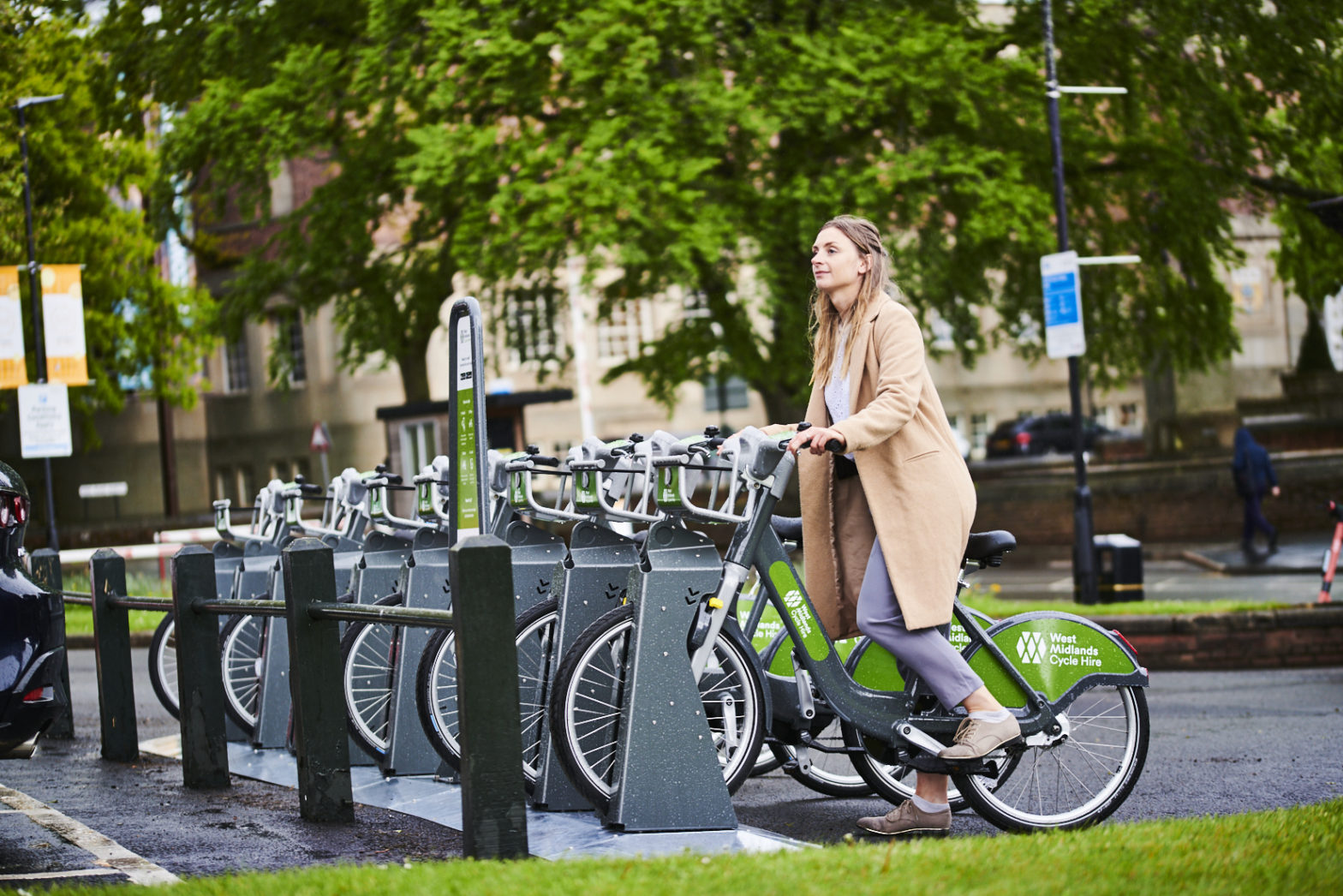
Photo: CoMoUK
UK electric bike share hits new record
26 April 2024
by Christopher Carey
A record number of daily trips were taken on shared bikes in the UK last year, with more people using e-bikes instead of conventional pedal cycles for the first time.
A new report by shared-transport charity Collaborative Mobility UK (CoMoUK) shows that bike-share schemes recorded close to 25 million hires between September 2022 and September 2023, an average of 67,565 rides per day.
This was up from the 54,285 rides per day recorded in 2022, an increase of 24 percent, with the number of locations of schemes across the UK also growing from 43 to 48.
“Our research clearly demonstrates the hugely positive impact that bike-sharing schemes have, both for the people who use them and for society as a whole,” said Richard Dilks, Chief Executive of CoMoUK.
“By offering easy and affordable access to cycling, such schemes improve people’s physical and mental health, cut the number of cars on the road and reduce carbon emissions.
“The rise of the e-bike, which has now overtaken the pedal cycle in terms of hires, is pushing the popularity of bike sharing to new highs and there is no sign of this trend slowing down.”
Benefits
For the first time, the number of e-bikes available through sharing schemes has overtaken conventional pedal bikes, with more than 25,000 on the road by the end of September 2023.
This is more than double the 12,000 available only a year previously, with 59 percent of all bike-share hires now being made on e-bikes, up from 45 percent.
A total of 14,548,660 e-bike hires were reported in the period covered by the report, a huge increase on the six million undertaken in the previous year.
The most popular reason for renting an e-bike or e-cargo bike was to cut journey times, with 53 percent giving this answer. Just under half (46 percent) said they chose an e-bike to avoid fatigue or getting sweaty, while 40 percent wanted one so they could cycle up hills.
The annual report, which surveyed more than 1,100 active users, also discusses how bike-share schemes impact people’s physical and mental health.
A majority (80 percent) said using shared bikes boosted their mental health, with 89 percent also agreeing that it provided them with exercise.
A further 57 percent said they were saving money by using bike-share schemes, while 85 percent said it removed the worry of their own bike being stolen.
Modal shift
The study also claims that bike sharing led to a reduction of 106,831 tonnes of carbon emissions across the UK by replacing 245 million car miles over the course of the year (based on the assumption that the average car in the UK emitted 0.26817 kg carbon dioxide equivalent per mile).
When asked which mode of transport survey respondents would mostly likely have used for their last bike-share trip if bike sharing had not been available, 24 percent chose the car, either as the driver (12 percent) or passenger (3 percent) in a privately owned vehicle, or by using a taxi or private-hire vehicle (9 percent).
The mode shift was also assessed by asking respondents: “How many miles a week, previously taken by car or taxi, have been replaced by use of the bike share scheme, if any?” Half of respondents reported that they had reduced their weekly car mileage thanks to the bike-share scheme.
“Despite these successes, governments across the UK have been slow to grasp the true potential of bike sharing and we urge them to look at how they can do more,” added Dilks.
“We look forward to more schemes being rolled out in UK cities during 2024, opening up this accessible and flexible mode of transport to an even wider audience.”
Image: CoMoUK






